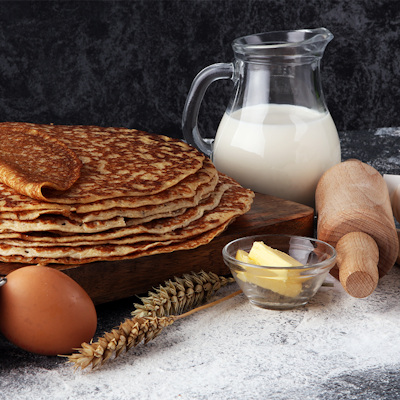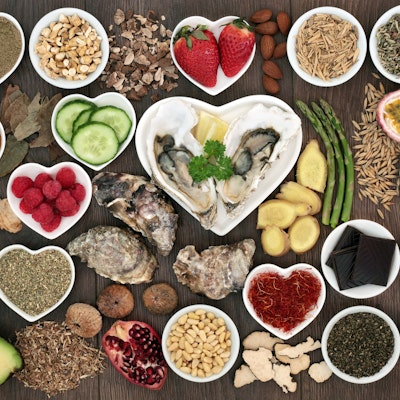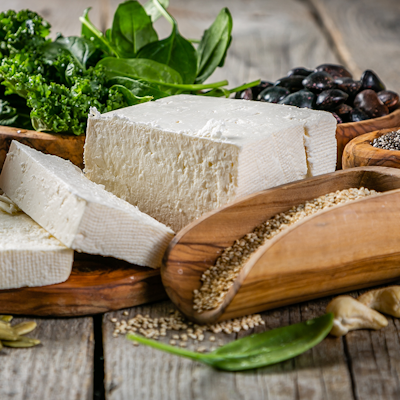What is organic food?
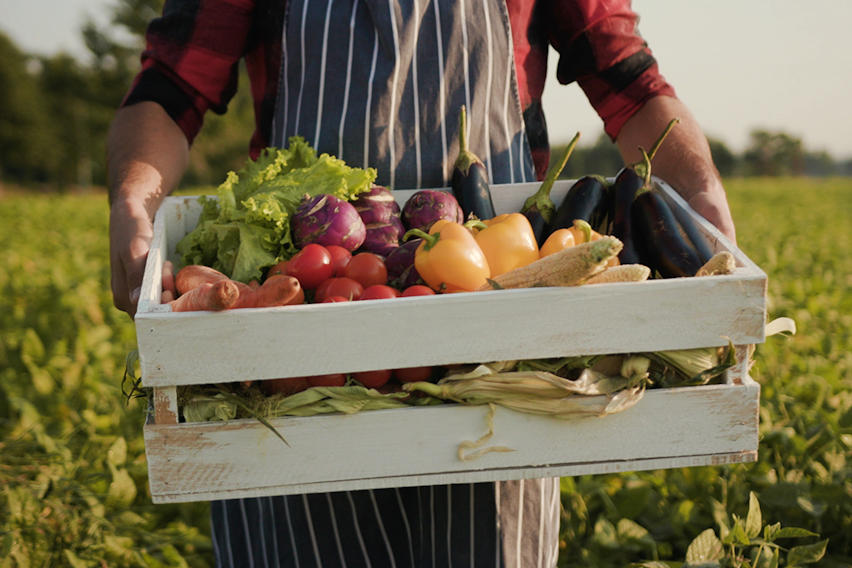
What exactly is organic food?
It’s a word we see everywhere - on labels, in menus, talked about on social media, but what does the concept of organic food actually mean?
Essentially, it means not using pesticides or antibiotics in the production of food, but of course the details and rules are a lot more nuanced than that. So to celebrate Organic September we’re breaking down all the important questions in this handy guide to organic food...
What does organic food mean?
Organic food, which is also sometimes referred to as “ecological food” or “biological food” is food (or drinks) that have been produced by the method of organic farming.
The most well-known fact about organic farming is that it prohibits the use of pesticides, but all of its practices are centred on promoting biodiversity, ecological balance and the health of the environment.
In order to legally be described as organic, food must obtain certification. Certification is based on standards defined by the government of the country in which the foods are being marketed. In the UK organic food and farming standards are set by The Department for Agriculture and Rural Affairs (DEFRA).
DEFRA states that:
“Organic food is the product of a farming system which avoids the use of man-made fertilisers, pesticides; growth regulators and livestock feed additives. Irradiation and the use of genetically modified organisms (GMOs) or products produced from or by GMOs are generally prohibited by organic legislation.
Organic agriculture is a systems approach to production that is working towards environmentally, socially and economically sustainable production. Instead, the agricultural systems rely on crop rotation, animal and plant manures, some hand weeding and biological pest control.”
Taken from DEFRA - Crown Copyright
Some other terms often used around the organic food and farming industry are "bio" and "eco".
You might also see foods described as being produced using organic principles or organic methods.
What is organic farming?
Organic farming, sometimes known as organic agriculture or ecological farming, is a way of producing food that employs increased biodiversity and methods that preserve the environment and improve animal welfare, and prohibit the use of artificial fertilisers.
It means more wildlife and biodiversity, the absence of veterinary medicines such as antibiotics in rearing livestock and the avoidance of genetic modification.
Organic farming can apply to a whole range of products - unprocessed food products (such as fruit), processed food products (such as cheese), and food for animals.
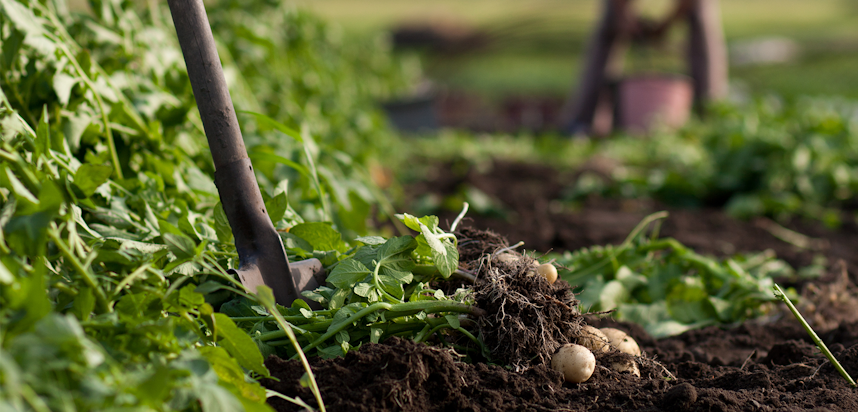
When can you label your product organic?
You can label your product, or describe your product, as organic if you have been certified to do so.
In the UK, in order to gain organic certification at least 95 percent of a product’s agricultural ingredients are organic (and have been produced using organic farming methods). If the product meets these requirements the business can apply to register with one of the UK’s organic control bodies (you can find more information here). These bodies can prevent you from labelling your products as organic if you do not comply with their requirements.
Organic food labels must include both your control body code number and a statement of the agricultural origin of your product.
Rules don’t just apply to product names but to the company name too - you cannot include the word “organic” in your business or company name if you do not produce certified organic products.
The word organic has two meanings. One is “relating to or derived from living matter”, but organic food relates to the second meaning, “not using artificial chemicals in the growing of plants and animals for food and other products.”
Erudus and accreditations
Many certifications that food products can hold have organic associations - for instance, Food for Life Membership is free of charge for all Soil Association (who developed the world's first organic standards in the 1960s and who is still the UK’s largest organic certification body) organic processor and producer licensees, and many have standards in line with those required for organic certification.
Erudus allows Manufacturers to add their certifications to product specifications, so Wholesalers and Caterers can see what credentials they hold. You can find out more here.
You may also be interested in…
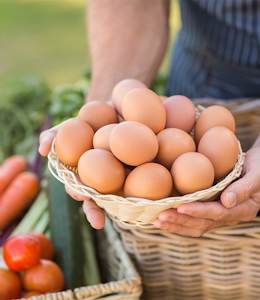
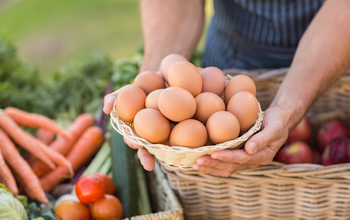
You may also be interested in…
Erudus… showcases Food for Life Supplier Scheme Certification
ReadSoil Association certification is highly regarded in terms of organic standards, and in celebration of Organic September the Erudus Podcast spoke to the Soil Association’s Mark Machin about what it means to eat and drink Organic at every step in the food supply chain. You can listen to it here.
What’s the difference between organic food and regular food?
The difference between organic food and non-organic food is the production method. Organic food is produced without using synthetic chemicals, pesticides and fertilisers. The taste and nutritional value of organic food and non-organic food is not necessarily different.
What are the advantages of organic food?
Some people would consider there to be mutual benefits to choosing organic food.
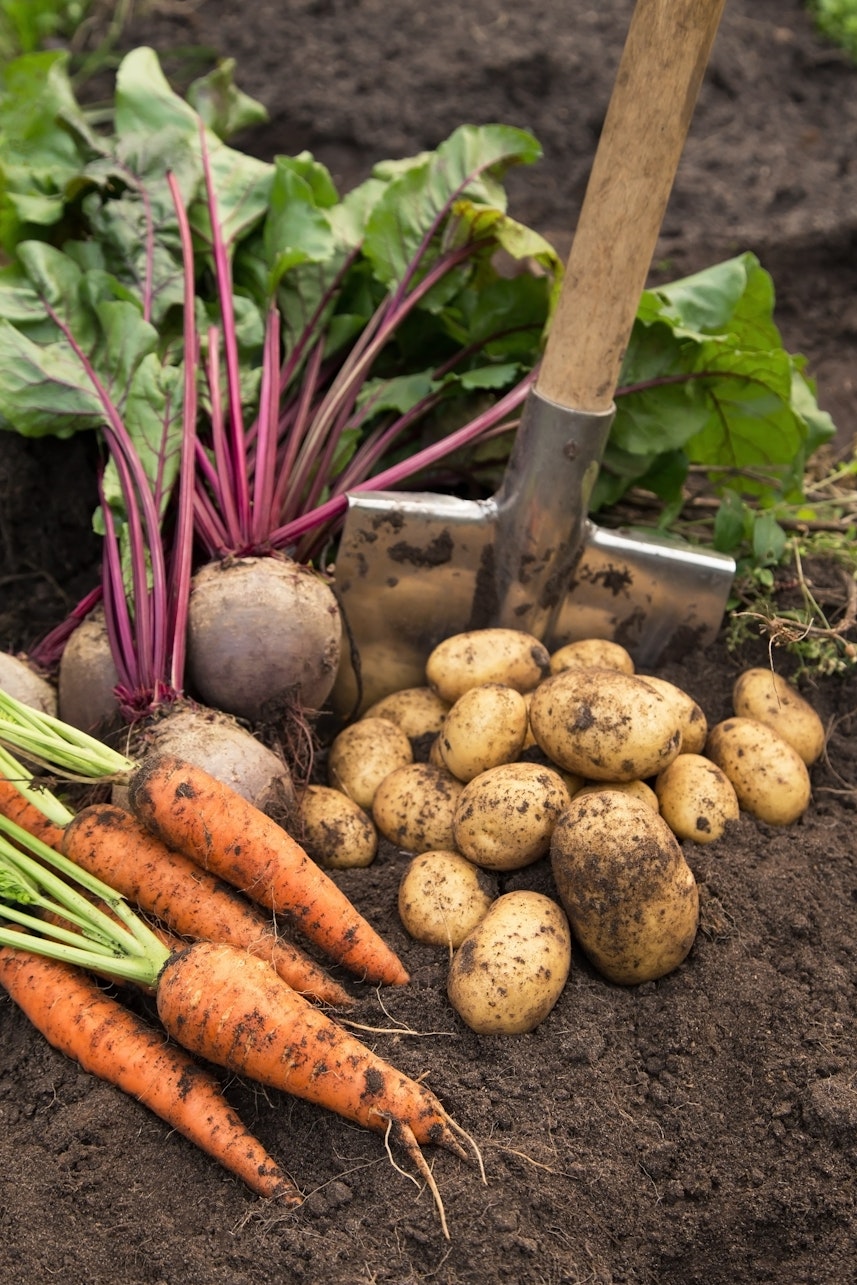
For consumers these include:
- Fewer pesticides in the food.
- No preservatives in the food mean it is fresher when eaten.
- Organic food is generally more environmentally friendly.
- Organic farming tends to be better for the environment.
- Organic meat has no antibiotics or growth hormones.
- Organically raised animals tend to have been better treated.
- Better support for local farmers.
- Less air pollution.
- Less soil pollution.
For businesses the benefits include:
- A better carbon footprint.
- Easier to qualify for a multitude of certifications that can make products more attractive to both industry customers and the end consumer.
Which foods are organic foods?
Many foods have the potential to be organically produced - fruits, vegetables, dairy products, meat, grains and even processed foods and drinks.
Some of the most popular organic foods are:
- Beef
- Milk
- Potatoes
- Apples
- Strawberries
- Kale
- Spinach
- Peaches
- Celery
- Lettuce
- Cucumbers
- Blueberries
- Green beans
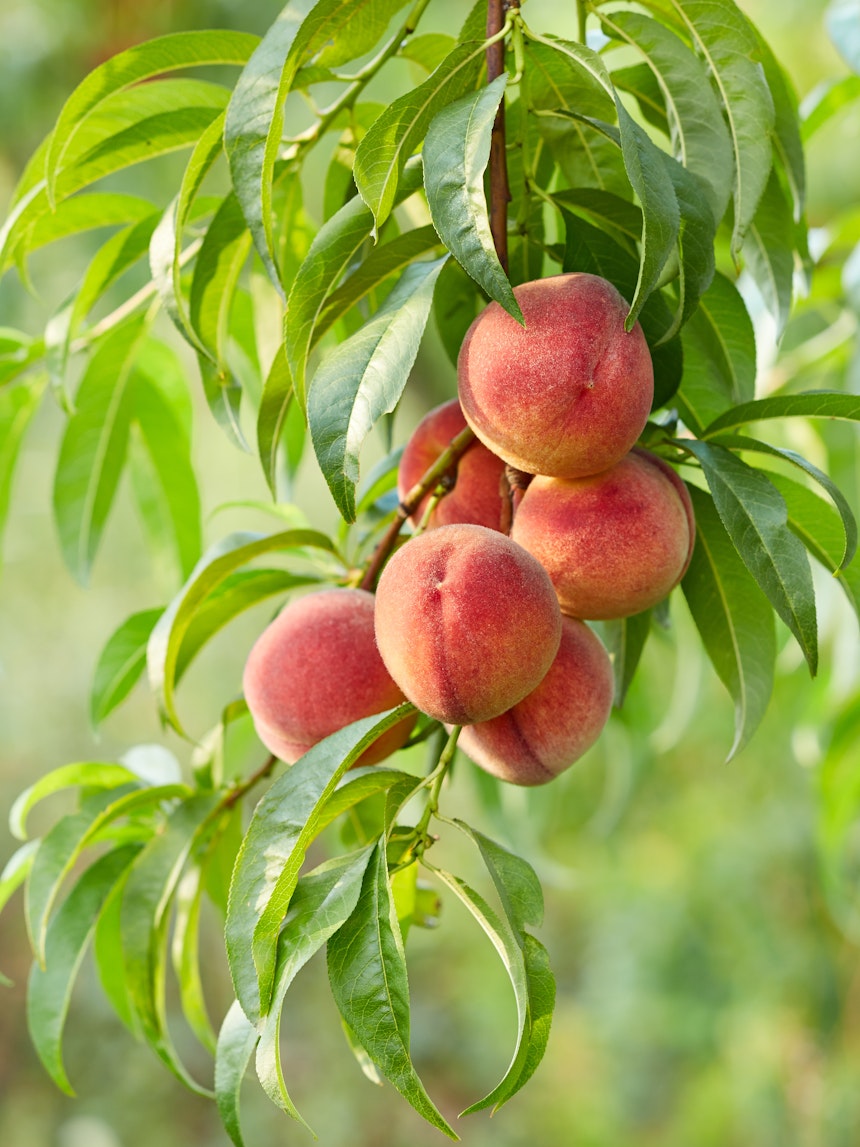
Is organic food better for you?
Nutritionally speaking, organic food and non-organic food are exactly the same. Foods like fruits and vegetables are healthy regardless of whether they are organic or not.
Why is organic food more expensive?
Organic food is more expensive than non-organic food because it is more expensive to produce.
This is because:
- Not using pesticides and fertilisers means finding other means of weed and pest control. These other means tend to be more time-consuming and labour intensive - costing the business money.
- More attention to detail is needed, costing time and consequently money.
- Organic crops are more at risk of being lost to disease.
- Smaller production runs mean the potential of economies of scale.
However, organic food bought directly from the farmer - for instance in a farm shop - is not necessarily more expensive than non-organic food bought from somewhere like the supermarket.
And some products, such as mushrooms, milk and onions, have only a small price difference between organic and non-organic.
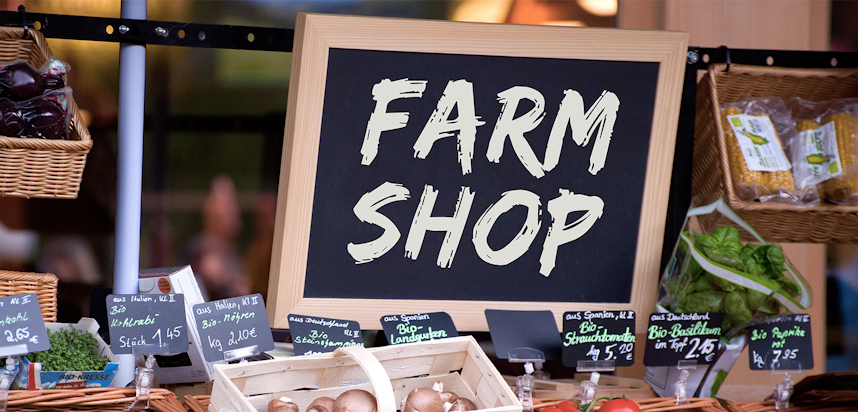
When did organic food become popular?
Organic farming was the norm until fertilisers and pesticides were invented. So it’s actually the re-introduction of organic food that has had an increase in popularity.
The resurgence began to gather steam in the 70s, with the emergence of exercise trends and an increased interest in personal health. Organic food and health food became more widely available in the 80s and 90s, with official standards being developed and the European Union granting aid to organic farming.
Today, with people more aware of and interested in things like sustainability and animal welfare, organic food is more popular than ever before.
You may also be interested in…
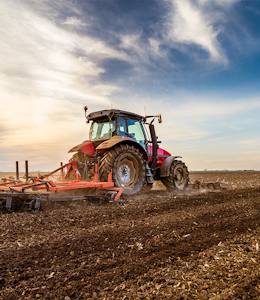
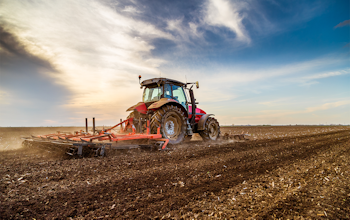
You may also be interested in…
Erudus… showcases LEAF (Linking Environment and Farming) Certification
ReadYou may also be interested in…
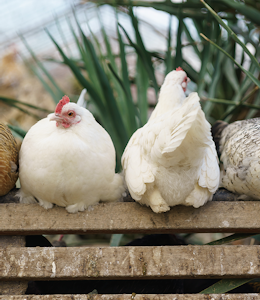
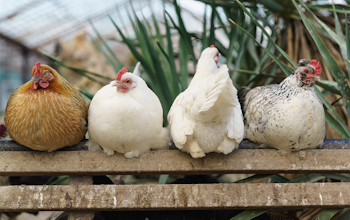
You may also be interested in…
Erudus… showcases RSPCA Assured Certification
ReadYou may also be interested in…
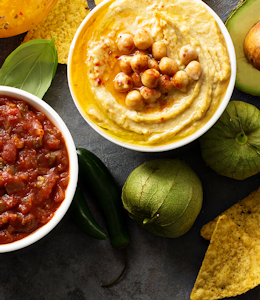
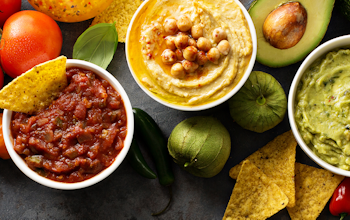
You may also be interested in…
